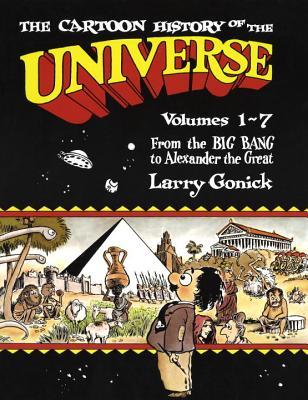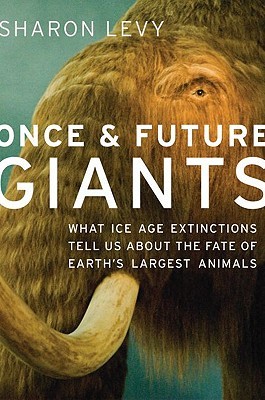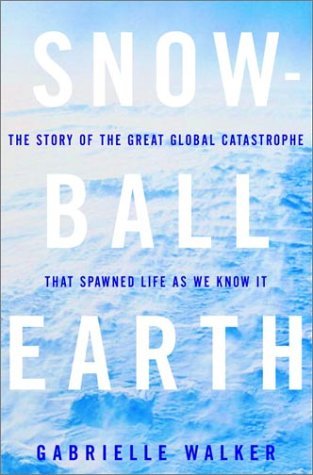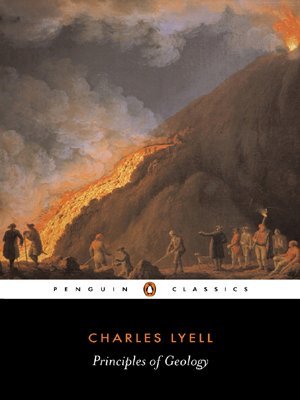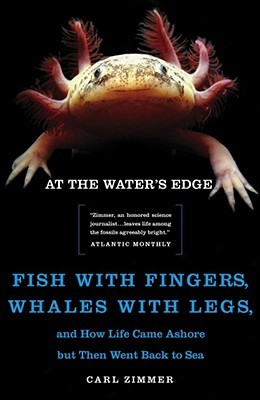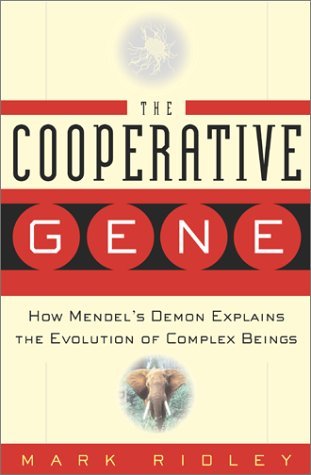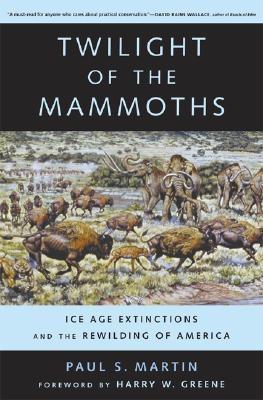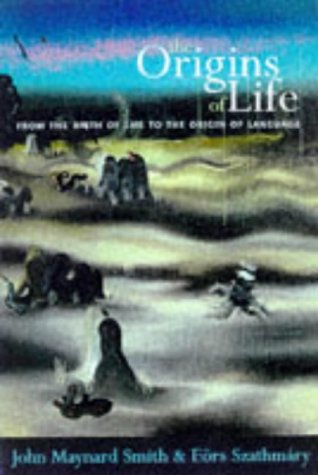Big History
Top 10 Big History
: Guns, Germs, and Steel: The Fates of Human Societies, Collapse: How Societies Choose to Fail or Succeed, Salt: A World History, The Last Days of the Incas, The Disappearing Spoon: And Other True Tales of Madness, Love, and the History of the World from the Periodic Table of the Elements, The Eternal Frontier: An Ecological History of North America and Its Peoples, Your Inner Fish: A Journey Into the 3.5-Billion-Year History of the Human Body, Clock of the Long Now: Time and Responsibility: The Ideas Behind the World's Slowest Computer, In Search of Time: The Science of a Curious Dimension, Symbiotic Planet: A New Look at Evolution
Guns, Germs, and Steel: The Fates of Human Societies
| Author | Jared Diamond |
| ISBN | 0739467352 |
"Diamond has written a book of remarkable scope ... one of the most important and readable works on the human past published in recent years."
Winner of the Pulitzer Prize and a national bestseller: the global account of the rise of civilization that is also a stunning refutation of ideas of...
Collapse: How Societies Choose to Fail or Succeed
| Author | Jared Diamond |
| ISBN | 0143036556 |
Brilliant, illuminating, and immensely absorbing, Collapse is destined to take its place as one of the essential books of our time, raising the urgent question: How can our world best avoid committing ecological suicide?
In his million-copy bestseller Guns, Germs, and Steel, Jared Diamond...
| Author | Mark Kurlansky |
| ISBN | 0142001619 |
From the Bestselling Author of Cod and The Basque History of the World
In his fifth work of nonfiction, Mark Kurlansky turns his attention to a common household item with a long and intriguing history: salt. The only rock we eat, salt has shaped civilization from the very beginning, and its story...
The Last Days of the Incas
Kim MacQuarrie lived in Peru for five years and became fascinated by the Incas and the history of the Spanish conquest. Drawing on both native and Spanish chronicles, he vividly describes the dramatic story of the conquest, with all its savagery and suspense. This authoritative, exciting history...
The Disappearing Spoon: And Other True Tales of Madness, Love, and the History of the World from the Periodic Table of the Elements
| Author | Sam Kean |
| ISBN | 0316051640 |
Why did Gandhi hate iodine (I, 53)? Why did the Japanese kill Godzilla with missiles made of cadmium (Cd, 48)? How did radium (Ra, 88) nearly ruin Marie Curie's reputation? And why did tellurium (Te, 52) lead to the most bizarre gold rush in history?
The periodic table is one of our crowning scientific...
| Author | Tim Flannery |
| ISBN | 0802138888 |
In The Eternal Frontier, world-renowned scientist and historian Tim Flannery tells the unforgettable story of the geological and biological evolution of the North American continent, from the time of the asteroid strike that ended the age of dinosaurs 65 million years ago, to the present day. Flannery...
Your Inner Fish: A Journey Into the 3.5-Billion-Year History of the Human Body
| Author | Neil Shubin |
| ISBN | 0375424474 |
Why do we look the way we do? What does the human hand have in common with the wing of a fly? Are breasts, sweat glands, and scales connected in some way? To better understand the inner workings of our bodies and to trace the origins of many of today's most common diseases, we have to turn to unexpected sources:...
| Author | Stewart Brand |
| ISBN | 0465007805 |
Using the designing and building of the Clock of the Long Now as a framework, this is a book about the practical use of long time perspective: how to get it, how to use it, how to keep it in and out of sight. Here are the central questions it inspires: How do we make long-term thinking automatic and common instead...
Time surrounds us. It defines our experience of the world; it echoes through our every waking hour. Time is the very foundation of conscious experience. Yet as familiar as it is, time is also deeply mysterious. We cannot see, hear, smell, taste, or touch it. Yet we do feel it?or at least we think we feel...
Symbiotic Planet: A New Look at Evolution
| Author | Lynn Margulis |
| ISBN | 0465072720 |
Although Charles Darwin’s theory of evolution laid the foundations of modern biology, it did not tell the whole story. Most remarkably, The Origin of Species said very little about, of all things, the origins of species. Darwin and his modern successors have shown very convincingly how inherited...
Cartoon History of the Universe I, Vol. 1-7: From the Big Bang to Alexander the Great
| Author | Larry Gonick |
| ISBN | 0385265204 |
This is a really fun—and actually quite comprehensive—historical overview. It's very handy as sort of a quick-reference guide and/or as a supplemental companion to the reading of primary source history texts. (I found it to be fabulously helpful along these lines with respect to Herodotus.)
A...
| Author | Sharon Levy |
| ISBN | 0195370120 |
Until about 13,000 years ago, North America was home to a menagerie of massive mammals. Mammoths, camels, and lions walked the ground that has become Wilshire Boulevard in Los Angeles and foraged on the marsh land now buried beneath Chicago's streets. Then, just as the first humans reached the Americas,...
| Author | David W. Anthony |
| ISBN | 0691058873 |
Roughly half the world's population speaks languages derived from a shared linguistic source known as Proto-Indo-European. But who were the early speakers of this ancient mother tongue, and how did they manage to spread it around the globe? Until now their identity has remained a tantalizing mystery...
Cod: A Biography of the Fish that Changed the World
| Author | Mark Kurlansky |
| ISBN | 0099268701 |
The Cod. Wars have been fought over it, revolutions have been triggered by it, national diets have been based on it, economies and livelihoods have depended on it. To the millions it has sustained, it has been a treasure more precious that gold. This book spans 1,000 years and four continents. From the...
The Great Transformation: The Beginning of Our Religious Traditions
| Author | Karen Armstrong |
| ISBN | 0385721242 |
In the ninth century BCE, the peoples of four distinct regions of the civilized world created the religious and philosophical traditions that have continued to nourish humanity to the present day: Confucianism and Daoism in China, Hinduism and Buddhism in India, monotheism in Israel, and philosophical...
| Author | William H. McNeill |
| ISBN | 0226561445 |
The Rise of the West, winner of the National Book Award for history in 1964, is famous for its ambitious scope and intellectual rigor. In it, McNeill challenges the Spengler-Toynbee view that a number of separate civilizations pursued essentially independent careers, and argues instead that human...
| Author | Gabrielle Walker |
| ISBN | 0609609734 |
Did the Earth once undergo a super ice age, one that froze the entire planet from the poles to the equator? In Snowball Earth, gifted writer Gabrielle Walker has crafted an intriguing global adventure story, following maverick scientist Paul Hoffman’s quest to prove a theory so audacious and profound...
One of the key works in the nineteenth-century battle between science and Scripture, Charles Lyell's Principles of Geology (1830-33) sought to explain the geological state of the modern Earth by considering the long-term effects of observable natural phenomena. Written with clarity and a dazzling...
| Author | Carl Zimmer |
| ISBN | 0684856239 |
Everybody Out of the Pond
At the Water's Edge will change the way you think about your place in the world. The awesome journey of life's transformation from the first microbes 4 billion years ago to Homo sapiens today is an epic that we are only now beginning to grasp. Magnificent and bizarre, it is...
| Author | Mark Ridley |
| ISBN | 0743201612 |
Why isn't all life pond-scum? Why are there multimillion-celled, long-lived monsters like us, built from tens of thousands of cooperating genes? Mark Ridley presents a new explanation of how complex large life forms like ourselves came to exist, showing that the answer to the greatest mystery of...
What Is Life? with Mind and Matter and Autobiographical Sketches
| Author | Erwin Schrödinger |
| ISBN | 0521427088 |
What Is Life? is a 1944 non-fiction science book written for the lay reader by physicist Erwin Schrödinger. The book was based on a course of public lectures delivered by Schrödinger in February 1943 at Trinity College, Dublin. Schrödinger's lecture focused on one important question: "how can...
| Author | Paul S. Martin |
| ISBN | 0520231414 |
As recently as 11,000 years ago—"near time" to geologists—mammoths, mastodons, gomphotheres, ground sloths, giant armadillos, native camels and horses, the dire wolf, and many other large mammals roamed North America. In what has become one of science's greatest riddles, these large animals...
J. M. Adovasio has spent the last thirty years at the center of one of our most fiery scientific debates: Who were the first humans in the Americas, and how and when did they get there?
At its heart, The First Americans is the story of the revolution in thinking that Adovasio and his fellow archaeologists...
The Origins of Political Order: From Prehuman Times to the French Revolution
| Author | Francis Fukuyama |
| ISBN | 0374227349 |
Virtually all human societies were once organized tribally, yet over time most developed new political institutions which included a central state that could keep the peace and uniform laws that applied to all citizens. Some went on to create governments that were accountable to their constituents....
| Author | Stephen Jay Gould |
| ISBN | 0674006135 |
The world's most revered and eloquent interpreter of evolutionary ideas offers here a work of explanatory force unprecedented in our time--a landmark publication, both for its historical sweep and for its scientific vision.
With characteristic attention to detail, Stephen Jay Gould...
The World Until Yesterday: What Can We Learn from Traditional Societies?
| Author | Jared Diamond |
| ISBN | 0670024813 |
The bestselling author of Collapse and Guns, Germs and Steel surveys the history of human societies to answer the question: What can we learn from traditional societies that can make the world a better place for all of us? Most of us take for granted the features of our modern society, from air travel and...
| Author | John Maynard Smith |
| ISBN | 0198504934 |
When John Maynard Smith and Eors Szathmary published The Major Transitions in Evolution, it was seen as a major work in biology. Nature hailed it as a book of "grand and daunting sweep.... A splendid and rewarding tour de force." And New Scientist wrote that it captured "the essence of modern biology,"...
Consilience: The Unity of Knowledge
"A dazzling journey across the sciences and humanities in search of deep laws to unite them." --The Wall Street Journal
One of our greatest living scientists--and the winner of two Pulitzer Prizes for On Human Nature and The Ants--gives us a work of visionary importance that may be...










